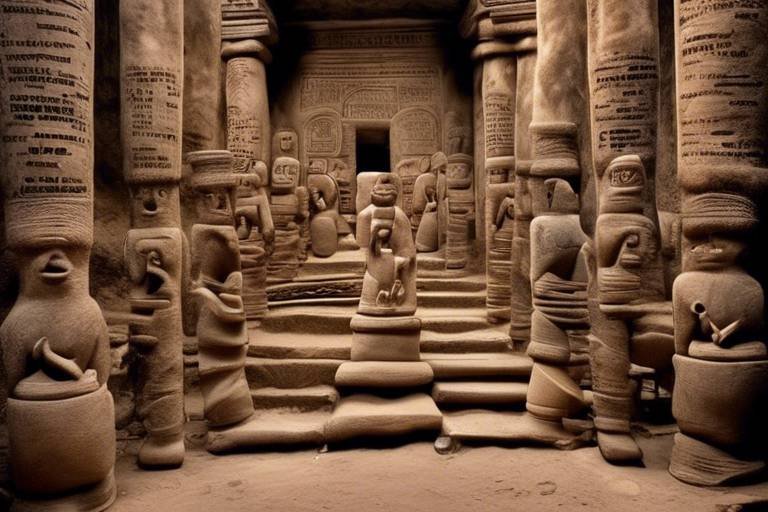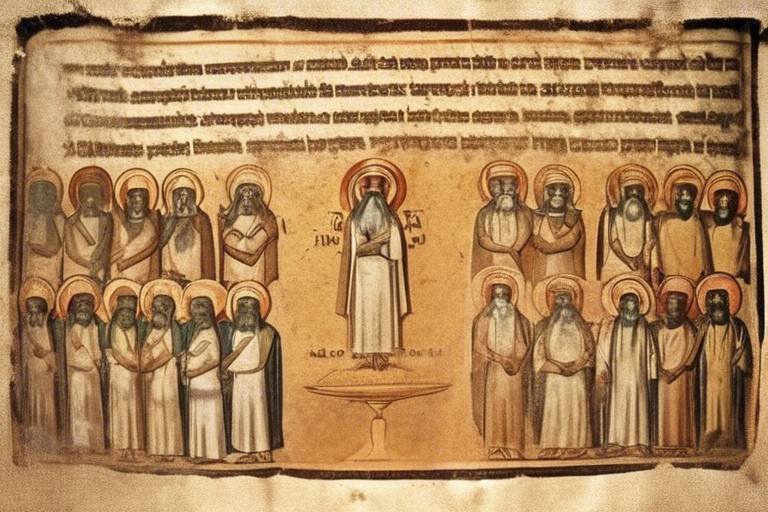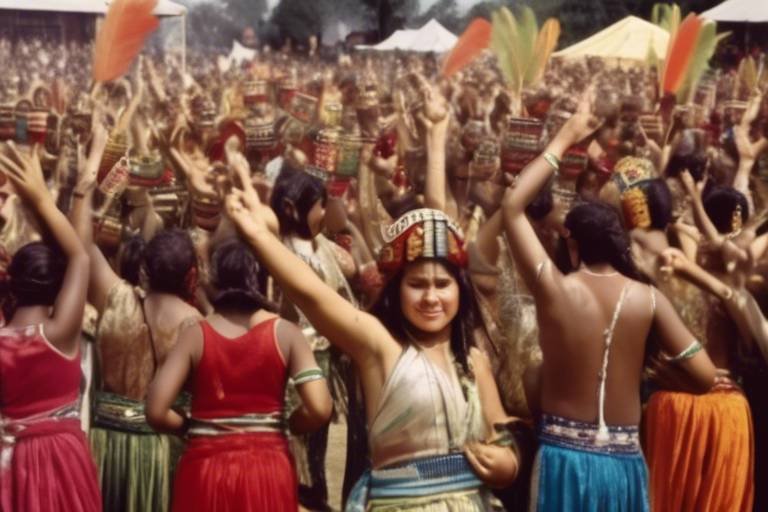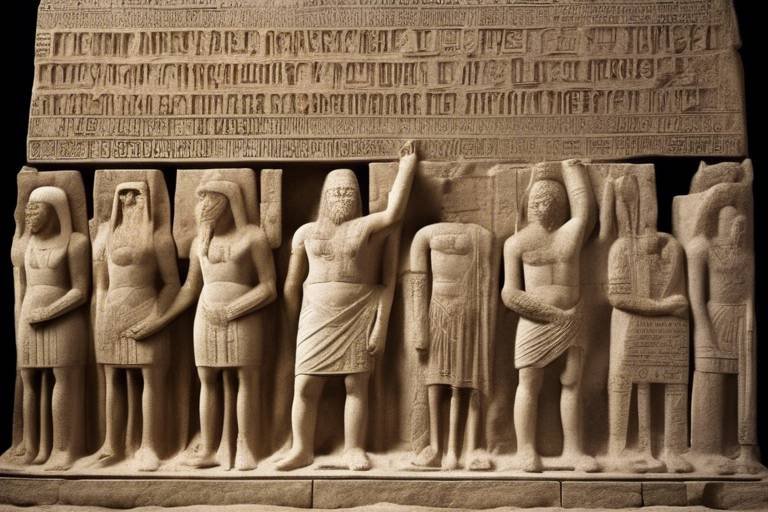The Influence of Ancient Egyptian Civilization on Modern Religion
Throughout history, the ancient Egyptian civilization has left an indelible mark on modern religion, shaping beliefs, practices, and symbols that continue to influence religious traditions worldwide. The rich tapestry of ancient Egyptian religious beliefs has woven its way through time, leaving a legacy that resonates in the rituals and doctrines of contemporary faiths.

Ancient Egyptian Religious Beliefs
Exploring how the beliefs, practices, and symbols of ancient Egyptian religion have shaped and influenced modern religious traditions, beliefs, and rituals across the world.
Ancient Egyptian religious beliefs were deeply rooted in the worship of a vast pantheon of gods and goddesses, each representing different aspects of life and nature. The Egyptians believed in the existence of an afterlife where the soul would journey to the realm of the dead and be judged by Osiris, the god of the underworld. Rituals and ceremonies played a crucial role in Egyptian religious practices, with offerings and prayers being made to the deities to ensure their favor and protection.
The concept of Ma'at, which represented truth, balance, and order, was central to Egyptian beliefs. It was believed that maintaining harmony with Ma'at was essential for the well-being of both the individual and the cosmos. The pharaoh, as the earthly representative of the gods, had a pivotal role in upholding Ma'at through his actions and rule.
Ancient Egyptians also held the belief in magic and the power of amulets and charms to protect against evil forces and ensure prosperity and good health. The practice of mummification and burial rituals reflected their beliefs in the preservation of the body for the afterlife and the journey of the soul to the realm of the dead.
The Nile River, considered a lifeline for the Egyptian civilization, was also imbued with religious significance, seen as a gift from the gods and a symbol of fertility and abundance. Festivals and celebrations were held throughout the year to honor the deities and express gratitude for their blessings.
Ancient Egyptian religious beliefs were intricately woven into every aspect of daily life, influencing art, architecture, literature, and social customs. The reverence for the divine and the interconnectedness of the spiritual and earthly realms defined the core of Egyptian religious worldview.

Ancient Egyptian Symbols and Icons
Ancient Egyptian religion is rich with symbols and icons that hold deep significance and continue to influence modern religious practices. One of the most recognizable symbols is the Ankh, often depicted in the hands of deities symbolizing life and immortality. The Eye of Horus, a powerful protective symbol, represents healing, wisdom, and prosperity. Additionally, the Scarab beetle, associated with the sun god Ra, symbolizes transformation and regeneration.
These symbols were not merely decorative but held profound meanings in ancient Egyptian belief systems. The Ankh, for example, was believed to hold the key to eternal life and was often used in funerary rites to ensure the deceased's journey to the afterlife. The Eye of Horus was a symbol of protection and good health, used in amulets and jewelry to ward off evil spirits and bring blessings.
Even in modern times, these ancient Egyptian symbols continue to be used in various religious and spiritual contexts. The enduring popularity of these symbols highlights their timeless appeal and the universal themes they represent. Their presence in modern jewelry, art, and even tattoos speaks to the enduring legacy of ancient Egyptian religious beliefs.
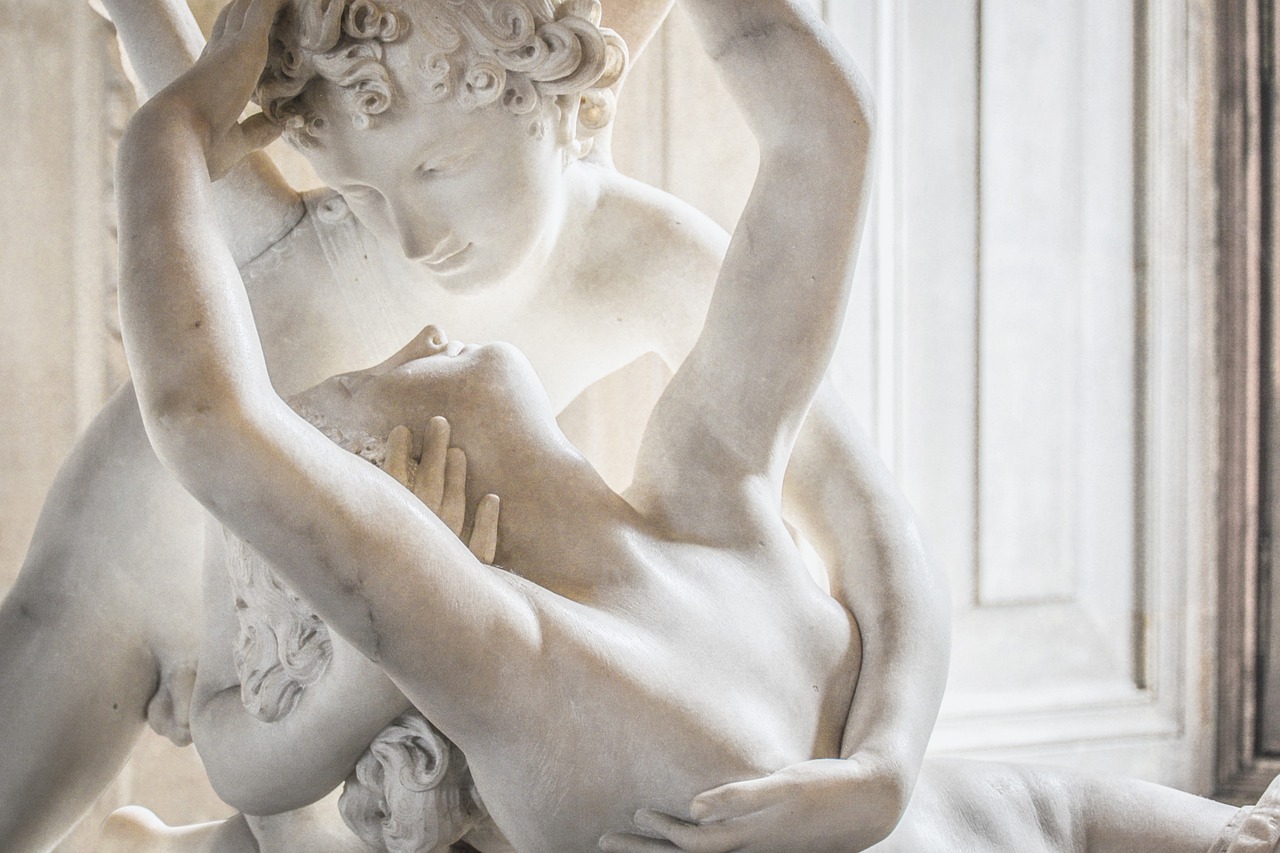
Impact on Monotheistic Religions
When delving into the impact of ancient Egyptian civilization on monotheistic religions, one cannot overlook the profound influence it has had on the development of belief systems such as Christianity, Judaism, and Islam. The intricate tapestry of ancient Egyptian religious concepts has woven its threads into the fabric of these monotheistic faiths, shaping their ideologies and practices in significant ways.
One of the most notable impacts is the concept of monotheism itself. While ancient Egyptian religion was polytheistic, with a pantheon of gods and goddesses, the idea of a single, all-powerful deity can be traced back to the reign of Pharaoh Akhenaten. His attempt to establish the worship of the sun god, Aten, as the sole god was a revolutionary concept that laid the groundwork for the monotheistic beliefs that would later emerge in Christianity, Judaism, and Islam.
Moreover, the symbolism and iconography of ancient Egyptian religion have left a lasting imprint on monotheistic traditions. The use of symbols such as the Ankh, representing life and immortality, and the Eye of Horus, symbolizing protection and healing, have found their way into the visual language of modern monotheistic faiths, adding layers of meaning and depth to their religious practices.
Additionally, the concept of the afterlife, central to ancient Egyptian beliefs, has influenced the eschatological views of monotheistic religions. The emphasis on judgment, resurrection, and the eternal fate of the soul can be seen as echoes of the Egyptian funerary rituals and beliefs surrounding the journey to the afterlife.
While the monotheistic religions have distinct theological doctrines and practices, the impact of ancient Egyptian civilization on their development cannot be denied. By examining the parallels and divergences between these belief systems, we gain a deeper understanding of the interconnectedness of religious thought throughout history.
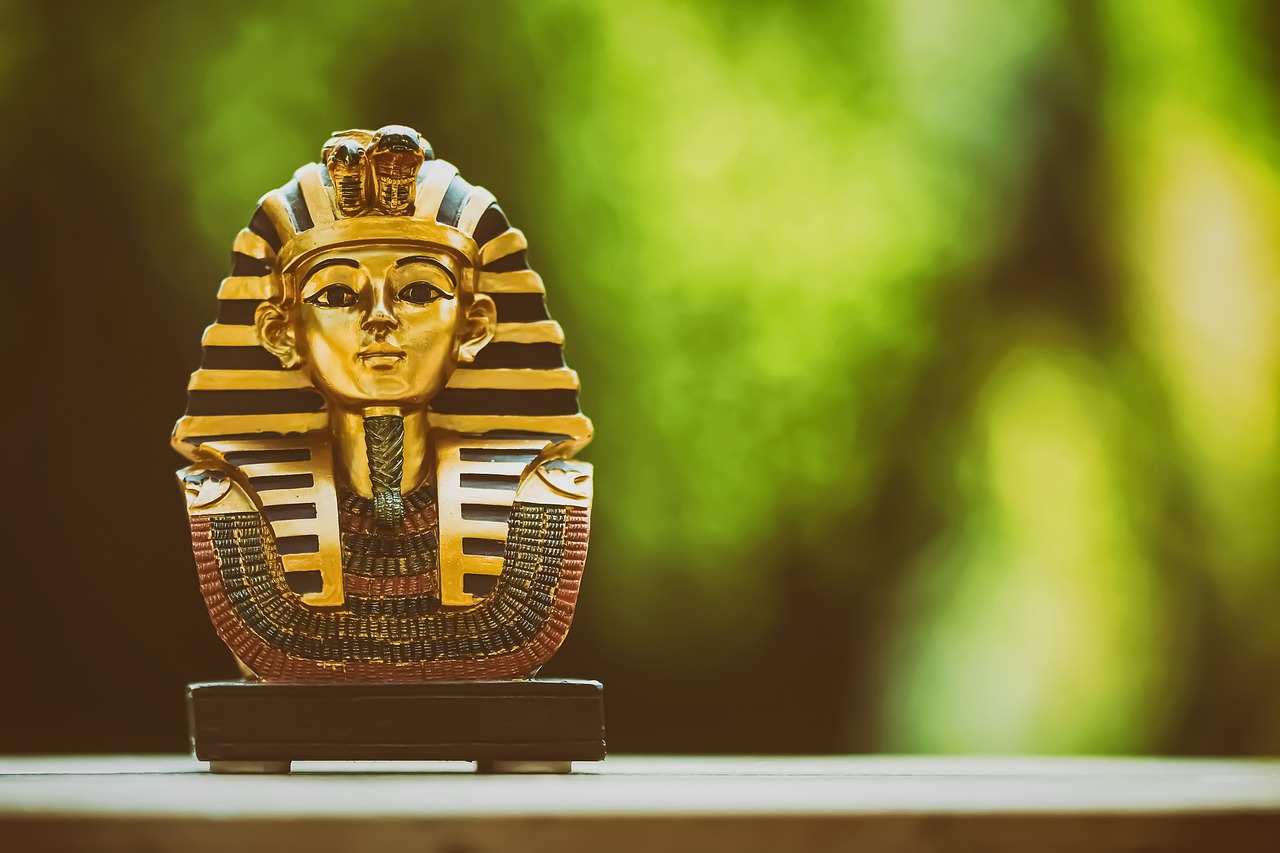
Archaeological Discoveries and Insights
Archaeological discoveries have played a crucial role in shedding light on the religious beliefs and practices of ancient Egypt. The unearthing of temples, tombs, and artifacts has provided valuable insights into how the ancient Egyptians worshipped their gods and goddesses, conducted rituals, and viewed the afterlife. These discoveries have allowed researchers to piece together a more comprehensive understanding of the complex religious system that underpinned ancient Egyptian society.
One of the most significant archaeological finds related to ancient Egyptian religion is the discovery of the Rosetta Stone, which played a pivotal role in deciphering hieroglyphics and unlocking the secrets of ancient Egyptian writing. This breakthrough enabled scholars to translate religious texts, temple inscriptions, and funerary rituals, providing a deeper understanding of the religious beliefs and practices of the ancient Egyptians.
Excavations in the Valley of the Kings have unearthed the elaborate tombs of pharaohs and nobles, filled with intricate wall paintings, hieroglyphic texts, and funerary goods. These tombs offer valuable insights into the ancient Egyptian beliefs about the afterlife, the journey of the soul, and the importance of proper burial rituals in ensuring a successful transition to the next world.
The discovery of the Book of the Dead, a collection of spells and incantations designed to guide the deceased through the afterlife, has provided researchers with detailed information about the religious beliefs surrounding death and the soul's journey to the underworld. This ancient text sheds light on the rituals and ceremonies performed to ensure the deceased's safe passage to the realm of the gods.
Through ongoing archaeological research and excavation projects, new discoveries continue to enrich our understanding of ancient Egyptian religion. These insights not only illuminate the religious practices of the past but also highlight the enduring influence of ancient Egyptian beliefs on modern religious traditions and cultural practices.
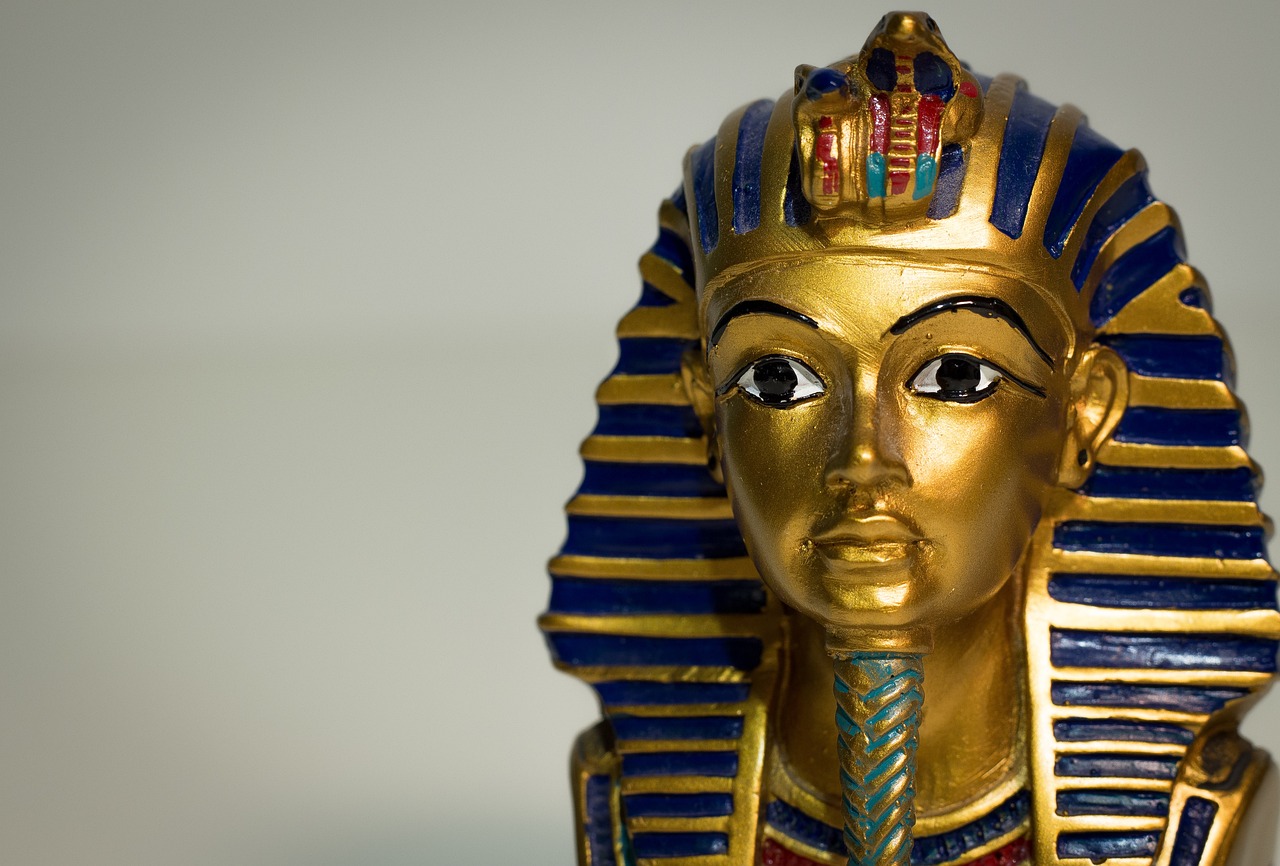
Modern Interpretations of Ancient Egyptian Religion
Modern interpretations of ancient Egyptian religion have seen a resurgence in recent years, with various spiritual movements and religious practices incorporating elements of this ancient belief system. The fascination with the mystical and symbolic aspects of ancient Egypt has led to a blending of old and new, creating a unique tapestry of spiritual exploration.
One notable aspect of modern interpretations is the focus on the symbolism of ancient Egyptian deities and artifacts. The use of symbols such as the Ankh, representing life and immortality, and the Eye of Horus, symbolizing protection and healing, has become prevalent in contemporary spiritual practices.
Furthermore, the concept of Ma'at, the ancient Egyptian principle of balance and harmony, has resonated with many seeking spiritual enlightenment and personal growth in today's chaotic world. The idea of living in alignment with cosmic order and truth has found a place in various modern belief systems.
Additionally, the practice of divination, inspired by the ancient Egyptian belief in the interconnectedness of the spiritual and physical realms, has gained popularity among those seeking guidance and insight into their lives. Tarot cards, crystal healing, and astrology are just a few examples of modern practices influenced by ancient Egyptian spirituality.
Moreover, the exploration of ancient Egyptian mythology and cosmology has inspired artists, writers, and scholars to delve into the rich tapestry of stories and symbols from this ancient civilization. The timeless themes of creation, death, and rebirth found in Egyptian mythology continue to captivate and inspire creative expression in various forms.
In conclusion, the modern interpretations of ancient Egyptian religion offer a glimpse into a mystical world that continues to intrigue and inspire seekers of spiritual wisdom and enlightenment. By blending ancient wisdom with contemporary practices, individuals are able to tap into the profound insights and symbolism of one of the world's oldest belief systems.
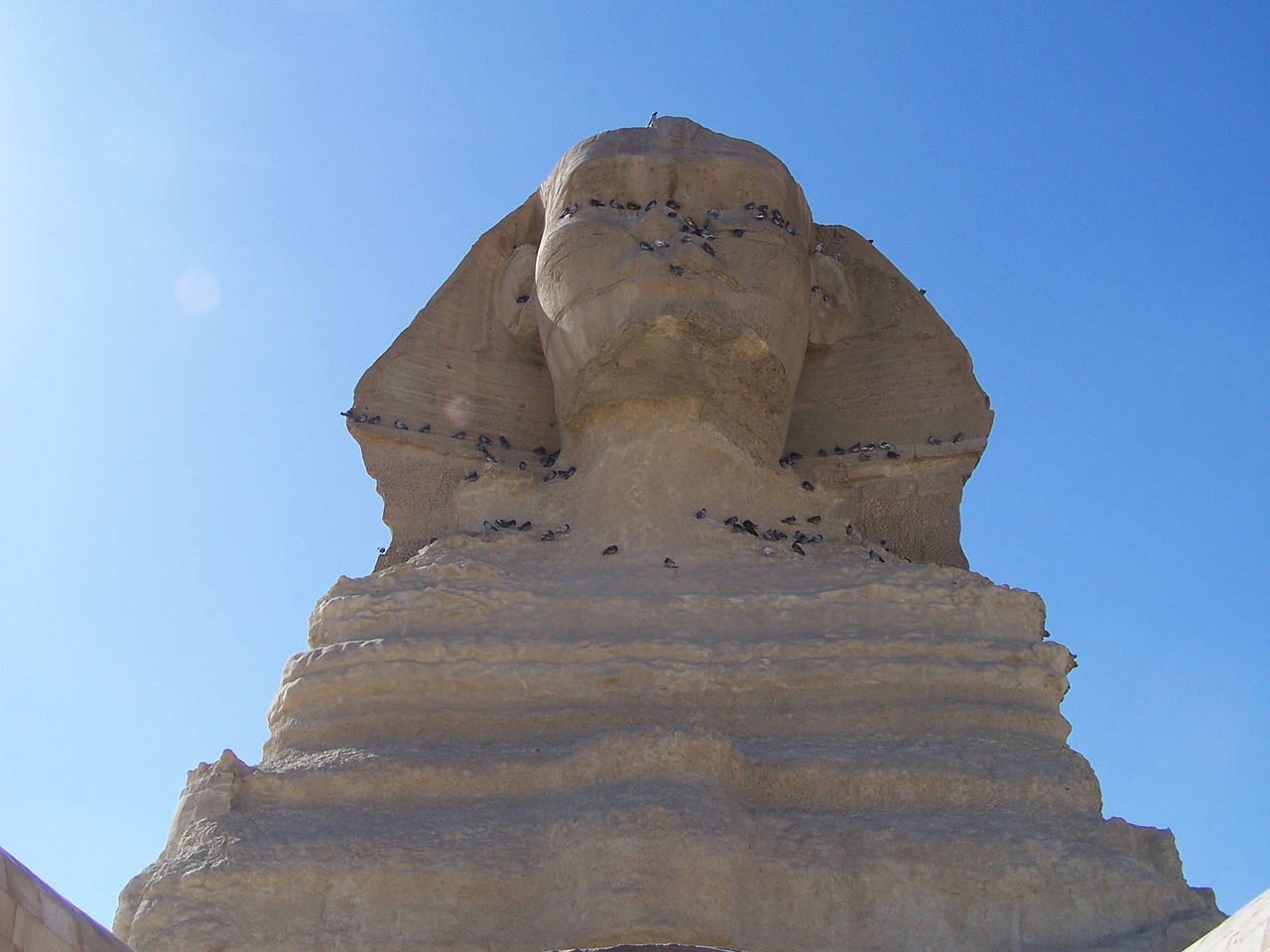
Legacy of Ancient Egyptian Religion
Ancient Egyptian religion has left an indelible mark on the world, with its legacy extending far beyond the sands of time. The influence of ancient Egyptian beliefs, practices, and symbols can be seen in various aspects of modern religious and cultural expressions. From art and architecture to literature and philosophy, the echoes of this ancient civilization continue to reverberate in our contemporary world.
One of the most striking legacies of ancient Egyptian religion is its impact on art and architecture. The grand temples dedicated to the gods and goddesses, the intricate hieroglyphs adorning tomb walls, and the majestic pyramids all stand as testaments to the profound spiritual beliefs of the ancient Egyptians. These architectural marvels not only served as places of worship but also as expressions of devotion and reverence towards the divine.
Literature also bears the imprint of ancient Egyptian religion, with myths and stories from this civilization influencing narratives across cultures. The tales of gods and goddesses, the journey of the soul in the afterlife, and the eternal struggle between chaos and order have inspired countless writers and storytellers throughout history.
Moreover, the philosophical underpinnings of ancient Egyptian religion have shaped the way we contemplate the mysteries of existence and the nature of the divine. The concept of Ma'at, representing truth, balance, and harmony, continues to resonate in ethical and moral discussions, reminding us of the enduring relevance of ancient wisdom.
Furthermore, the legacy of ancient Egyptian religion extends beyond the realm of spirituality, influencing modern practices and rituals. From the use of symbols like the Ankh as a symbol of life and immortality to the incorporation of rituals honoring the dead, the customs of ancient Egypt continue to find resonance in contemporary religious observances.
In conclusion, the legacy of ancient Egyptian religion is a rich tapestry woven into the fabric of human history. Its enduring influence can be seen in the art we create, the stories we tell, and the beliefs we hold dear. As we continue to explore the mysteries of the past, the legacy of ancient Egyptian religion serves as a guiding light, illuminating the path towards a deeper understanding of ourselves and the world around us.

Ancient Egyptian Rituals and Ceremonies
Ancient Egyptian rituals and ceremonies were integral to the religious practices of this ancient civilization, reflecting their deep connection to the spiritual realm and the divine forces they believed governed the universe. These rituals were not mere formalities but rather intricate performances aimed at maintaining harmony between the earthly realm and the realm of the gods.
One of the most well-known rituals in ancient Egyptian religion was the daily offering ritual, where priests presented food, drink, and incense to the gods in temples. This act of offering was believed to sustain the gods and ensure their favor upon the people. The meticulous preparation and presentation of these offerings were considered essential to maintaining cosmic balance.
Another significant ceremony was the "Opening of the Mouth" ritual, performed on statues and mummies to activate their senses in the afterlife. This ritual involved symbolic gestures and the recitation of spells to ensure that the deceased could see, hear, and speak in the afterlife, enabling them to continue their existence beyond death.
The annual festival of Opet was a grand celebration in honor of the god Amun, where the pharaoh and priests would parade through the streets, carrying statues of the gods and performing sacred rites. This festival served to renew the divine kingship of the pharaoh and reinforce the bond between the ruler and the gods.
Moreover, the "Beautiful Feast of the Valley" was a ceremony where the living honored their deceased ancestors by visiting their tombs, making offerings, and participating in communal feasting. This ritual was a way to ensure the well-being of the deceased in the afterlife and maintain familial connections across generations.
A key aspect of ancient Egyptian rituals was the belief in Ma'at, the concept of cosmic order and balance. The rituals and ceremonies were designed to uphold Ma'at by demonstrating respect for the gods, honoring the deceased, and promoting harmony within society. Failure to observe these rituals was believed to disrupt the natural order and invite chaos into the world.
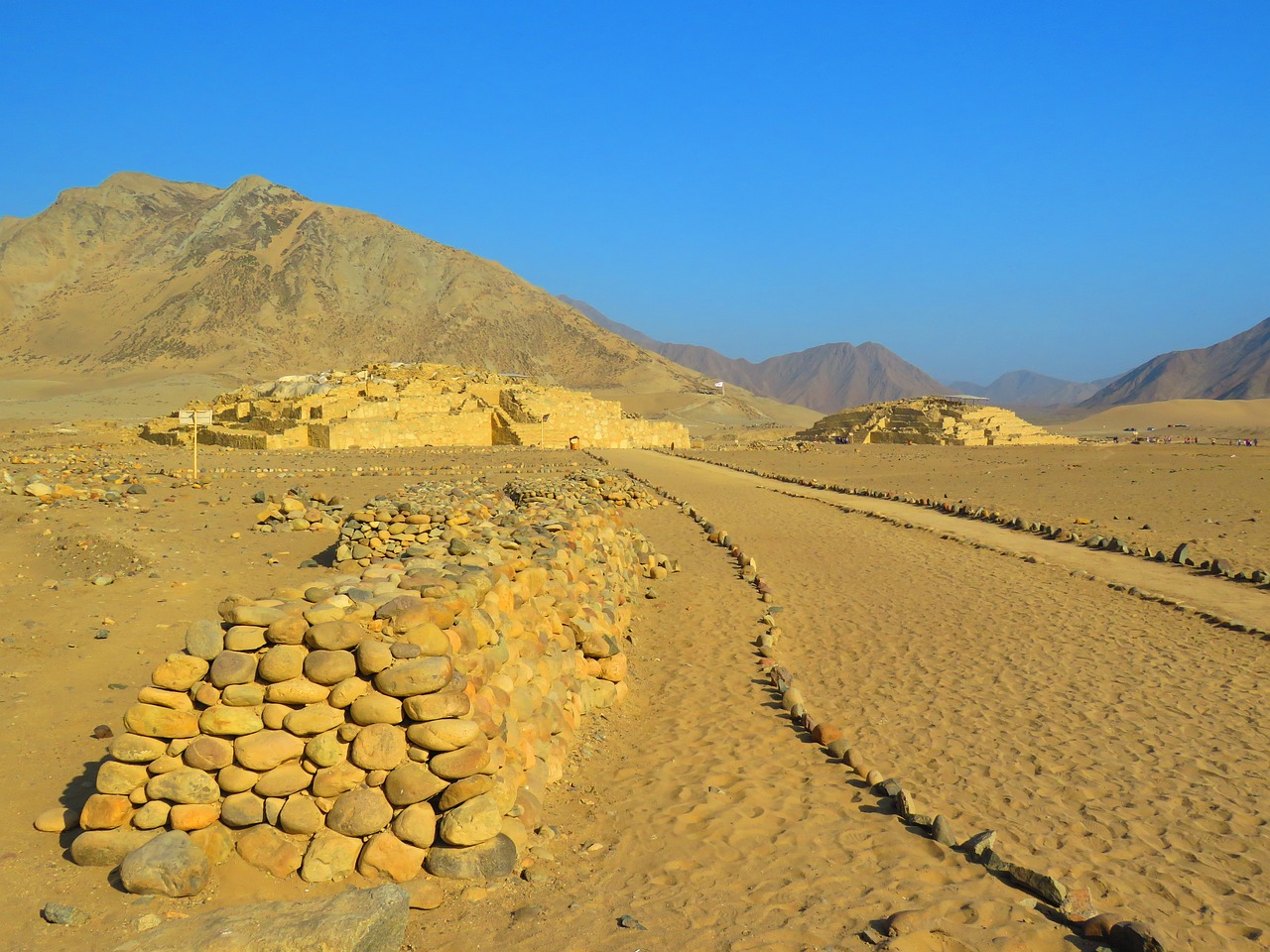
Comparative Analysis with Other Ancient Civilizations
When comparing the religious beliefs and practices of ancient Egyptian civilization with those of other ancient cultures such as Mesopotamia, Greece, and Rome, it becomes evident that each civilization had its unique characteristics and shared common themes. The ancient Egyptians, known for their elaborate burial practices and belief in the afterlife, differed significantly from the Mesopotamians, who focused more on the concept of divine intervention in human affairs.
On the other hand, the Greeks and Romans, while also polytheistic like the ancient Egyptians, had a more anthropomorphic view of their gods and goddesses, attributing human-like qualities to them. This contrasted with the symbolic and animalistic representations found in Egyptian religious iconography.
Moreover, the role of priests and priestesses in ancient Egyptian society differed from that of their counterparts in Mesopotamia, where the religious elite held significant political power. In contrast, Greek and Roman religious practices were closely intertwined with civic life, with temples serving as centers of community activities.
Despite these differences, all these ancient civilizations shared a common reverence for the divine, a belief in the supernatural, and a desire to understand and appease the forces beyond human control. The comparative analysis of these civilizations provides valuable insights into the diversity and complexity of human religious expression throughout history.
Frequently Asked Questions
- What were the core beliefs of ancient Egyptian religion?
Ancient Egyptian religion centered around the worship of a pantheon of gods and goddesses, the belief in the afterlife, and the importance of rituals and ceremonies to maintain harmony with the divine.
- How did ancient Egyptian symbols influence modern religions?
Symbols such as the Ankh, the Eye of Horus, and the Scarab beetle from ancient Egyptian religion have been adopted and adapted by various modern religious traditions, carrying on their symbolic meanings and significance.
- What impact did ancient Egyptian religious concepts have on monotheistic religions?
Ancient Egyptian religious ideas, particularly the concept of a single supreme deity, influenced the development of monotheistic religions like Christianity, Judaism, and Islam, shaping their theological frameworks and practices.
- How have archaeological discoveries contributed to our understanding of ancient Egyptian religion?
Archaeological findings have provided valuable insights into the religious practices and beliefs of ancient Egypt, shedding light on their rituals, deities, and afterlife beliefs, thus enriching our knowledge of this ancient civilization.
- Why is there a resurgence of interest in ancient Egyptian religion in modern times?
The resurgence of interest in ancient Egyptian religion can be attributed to its mystical allure, symbolic richness, and the desire of modern spiritual movements to reconnect with ancient wisdom and traditions for spiritual enrichment.












